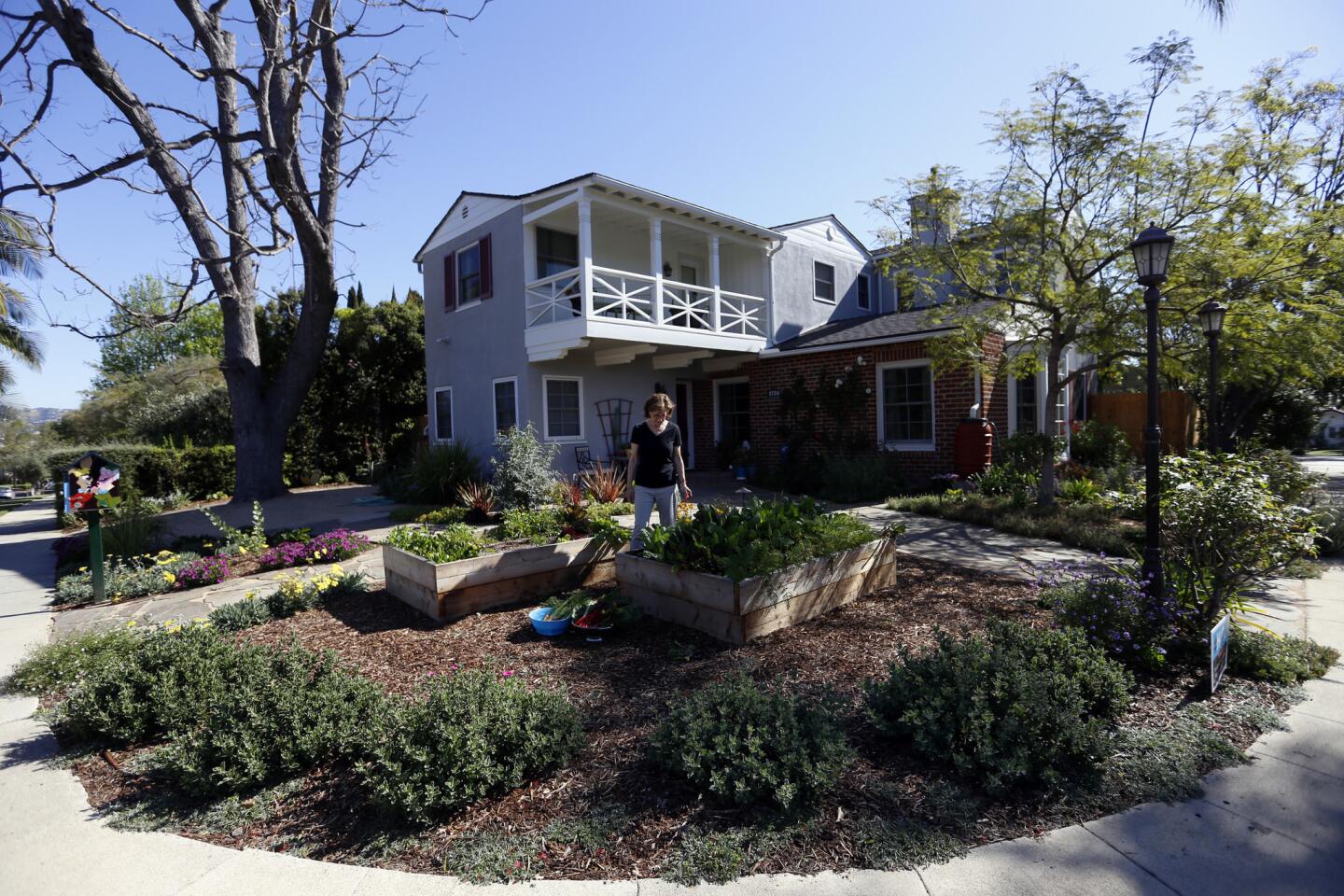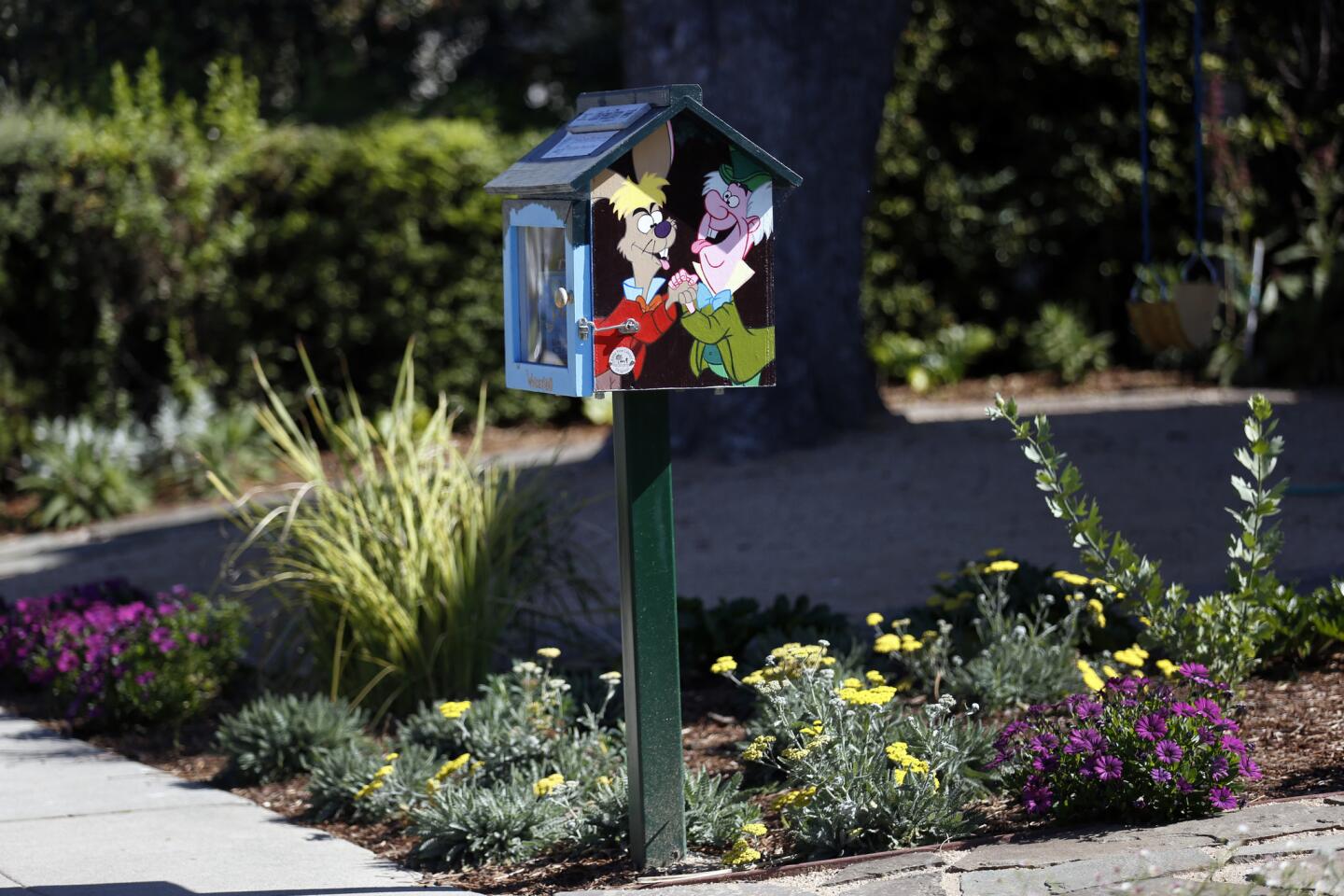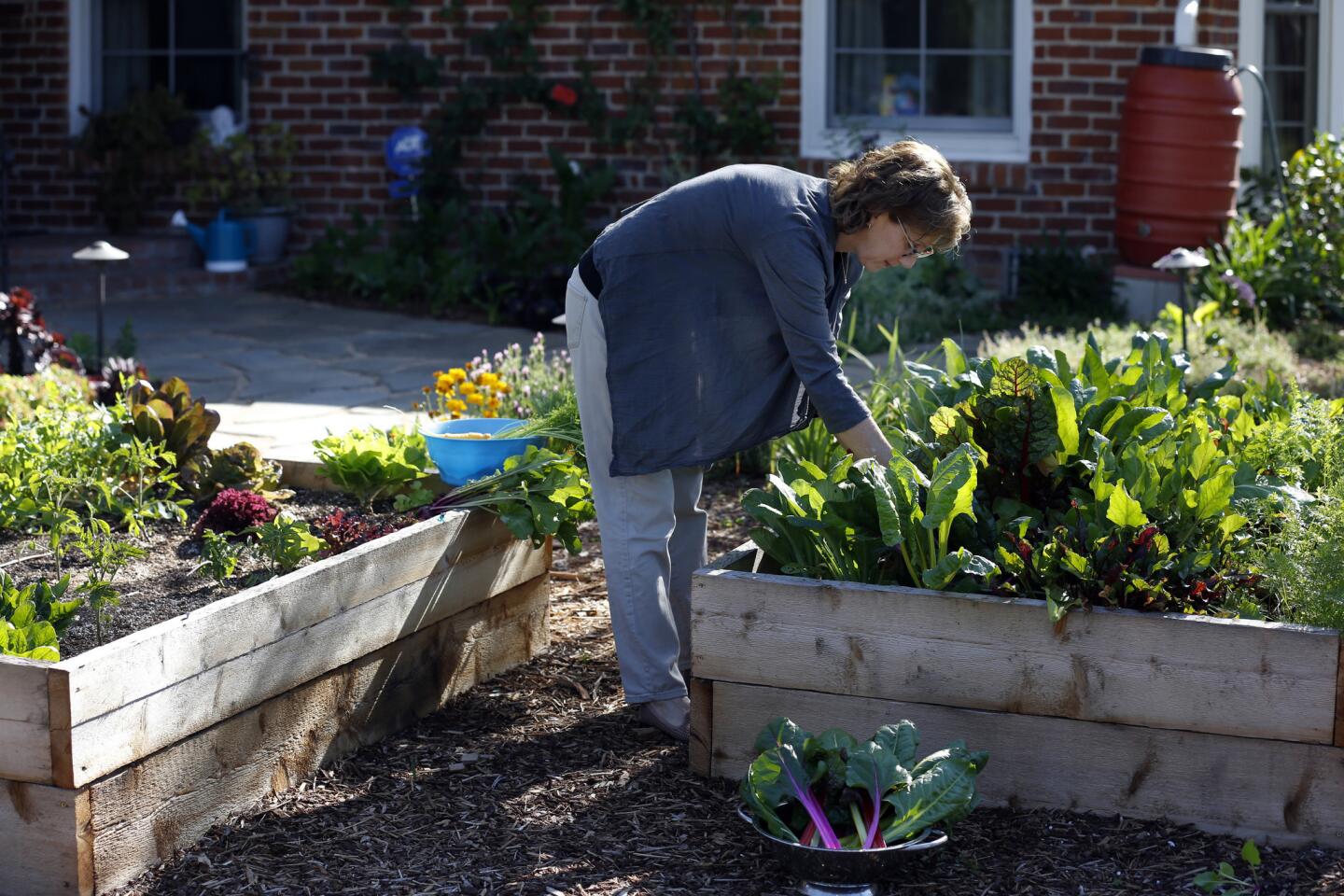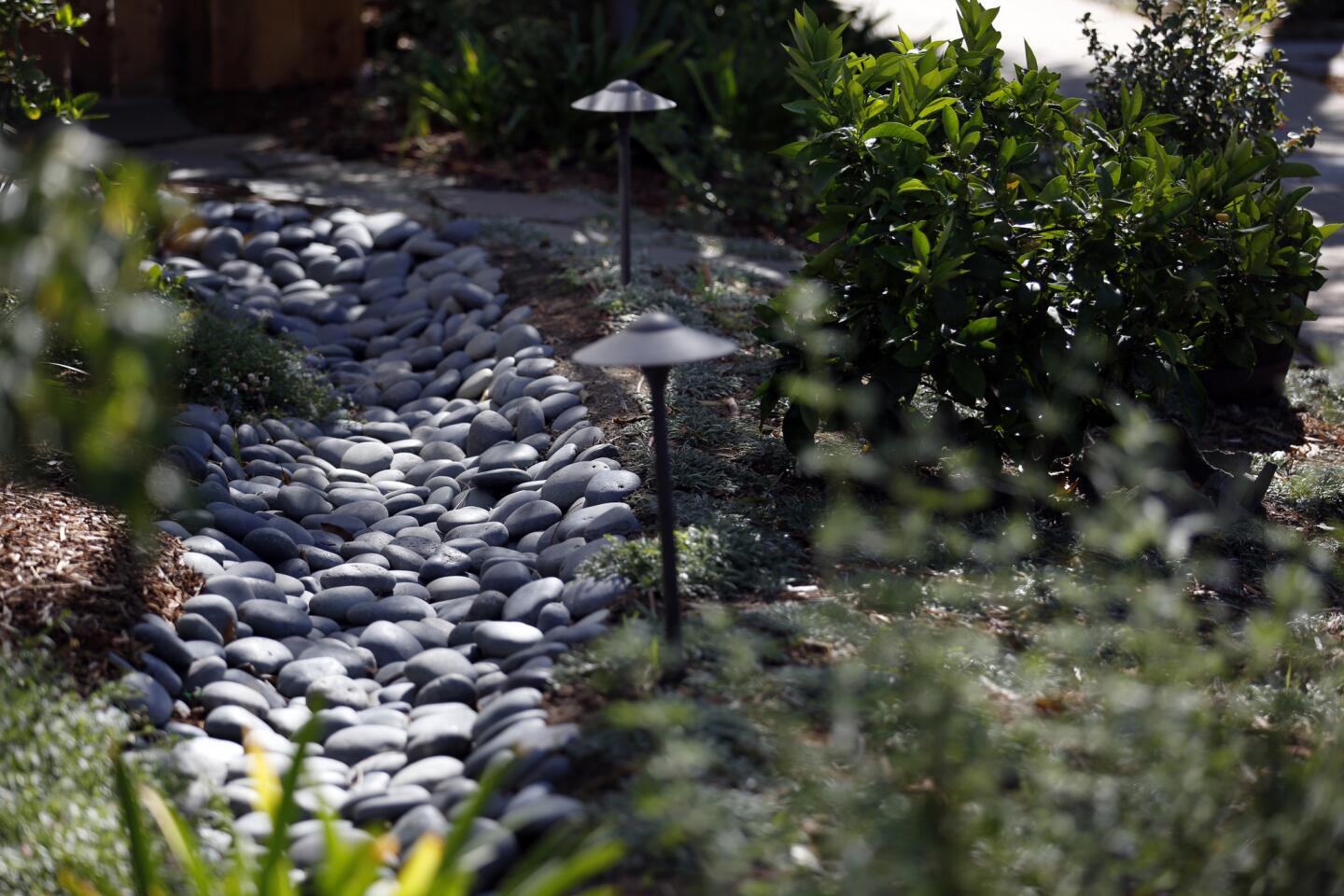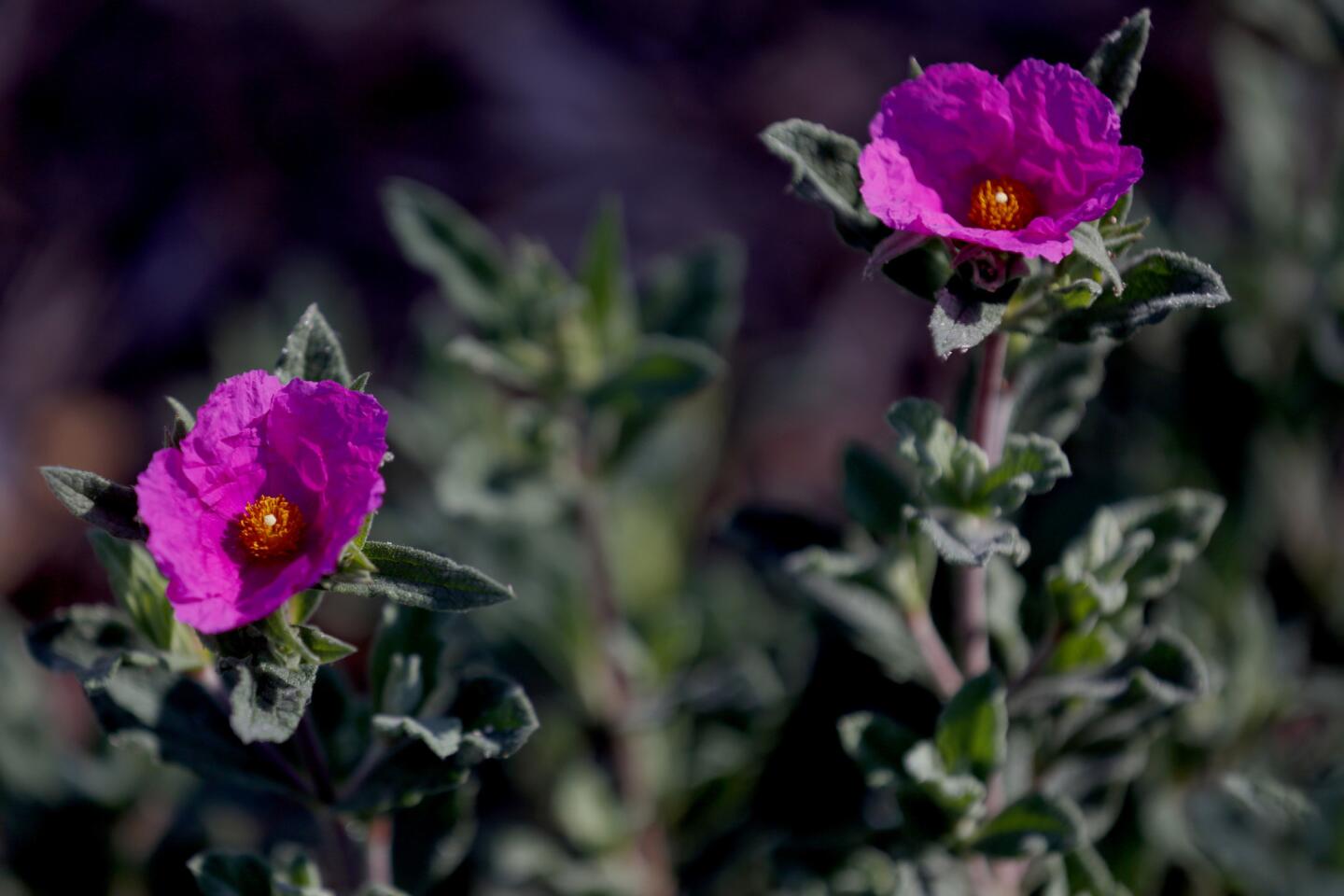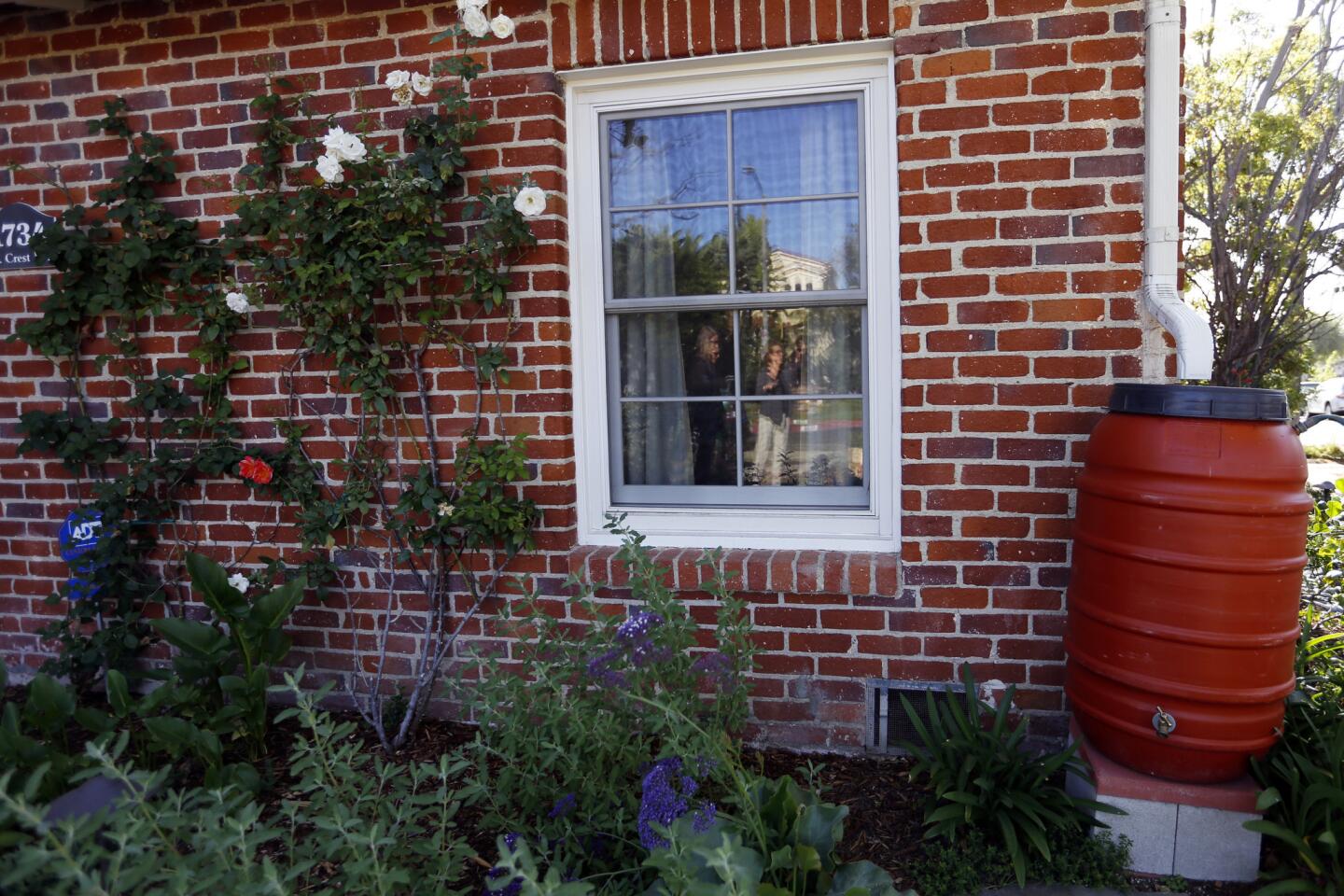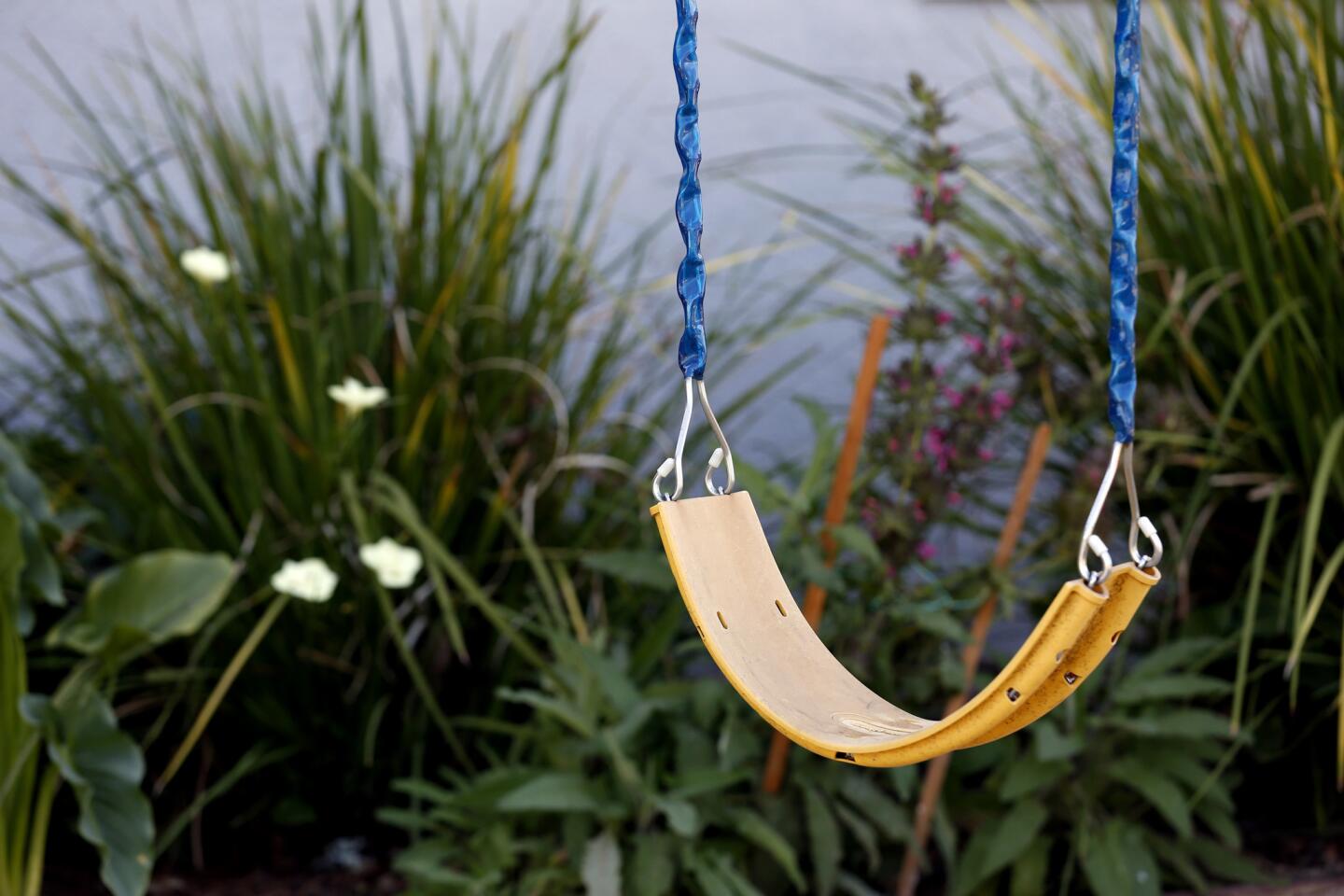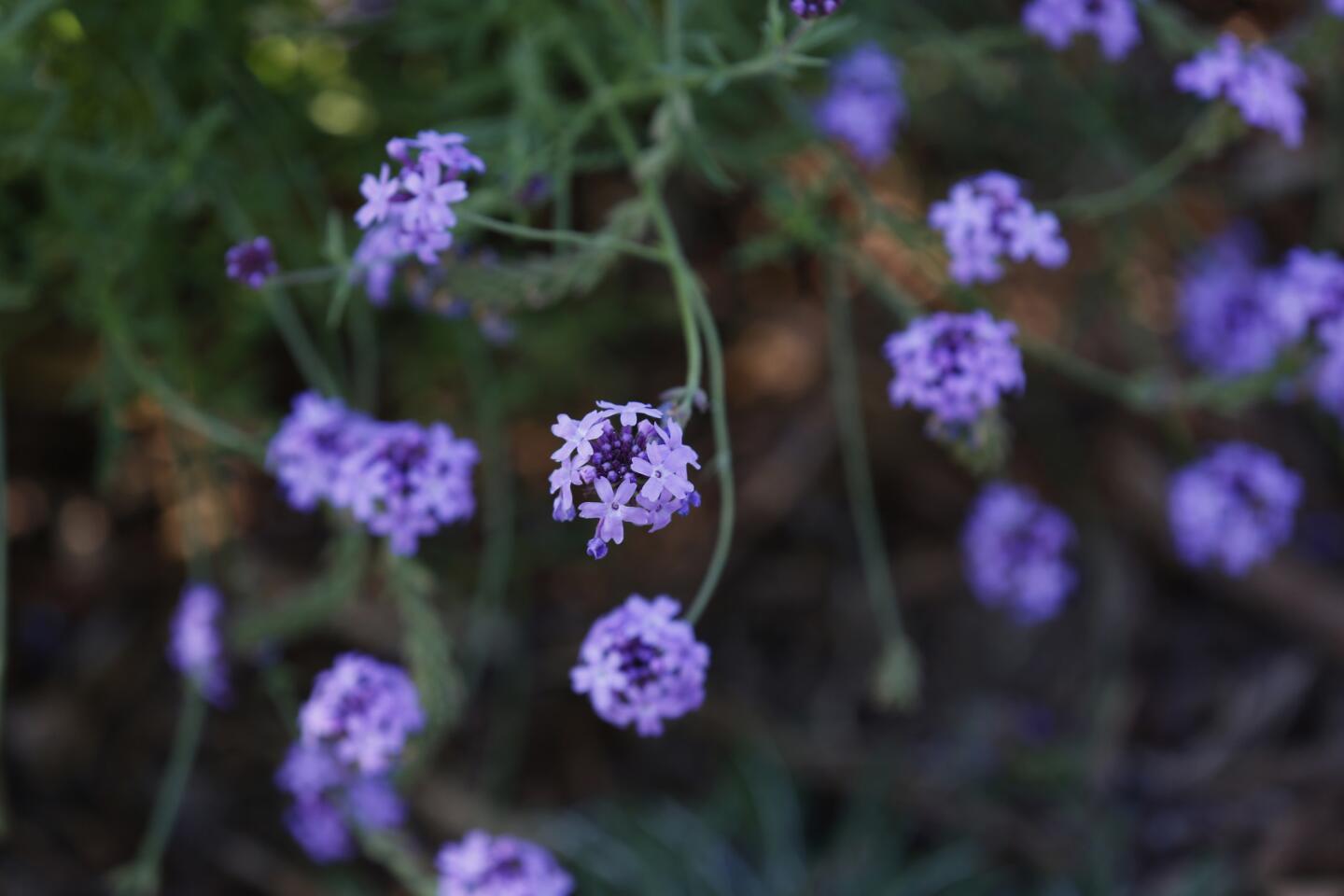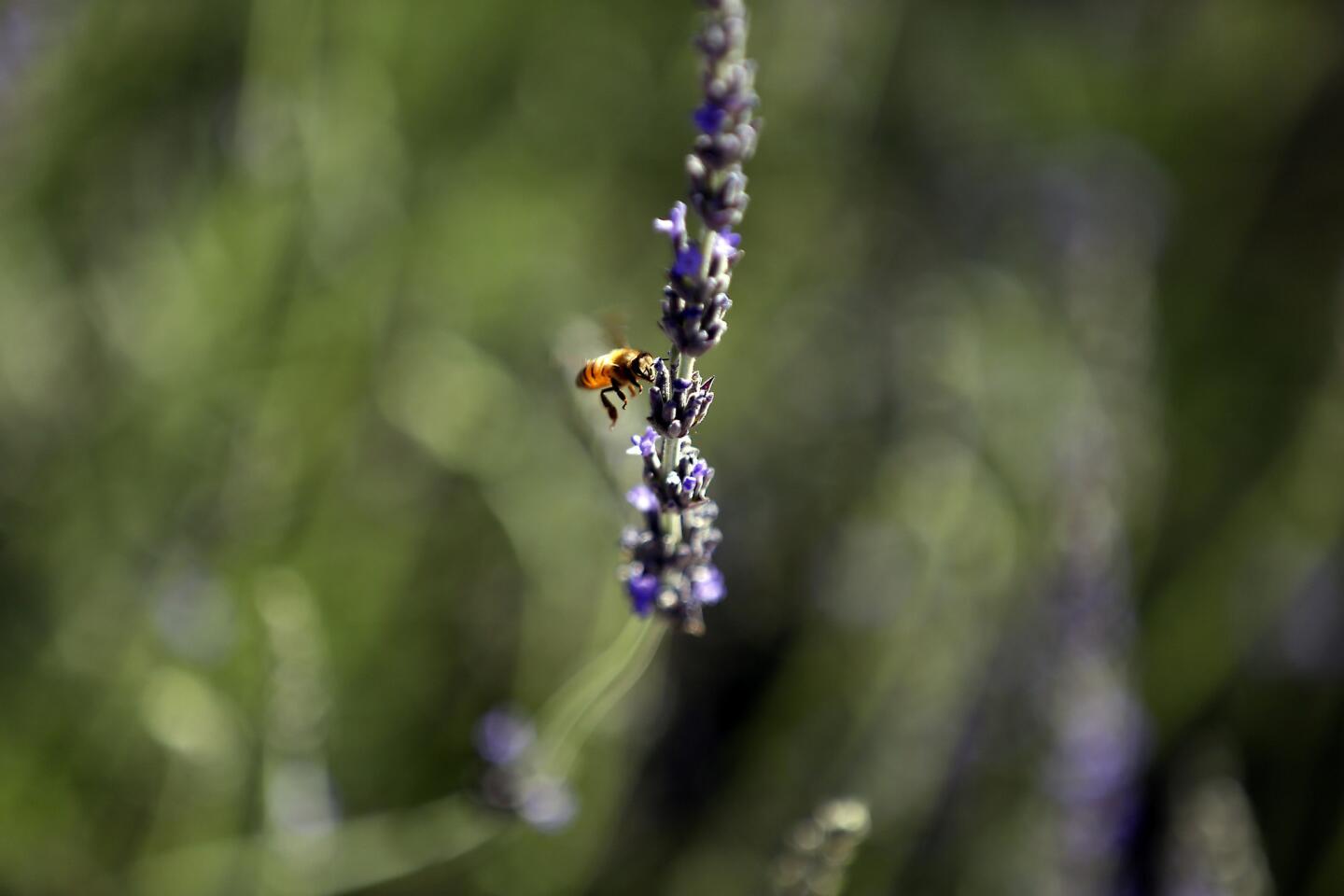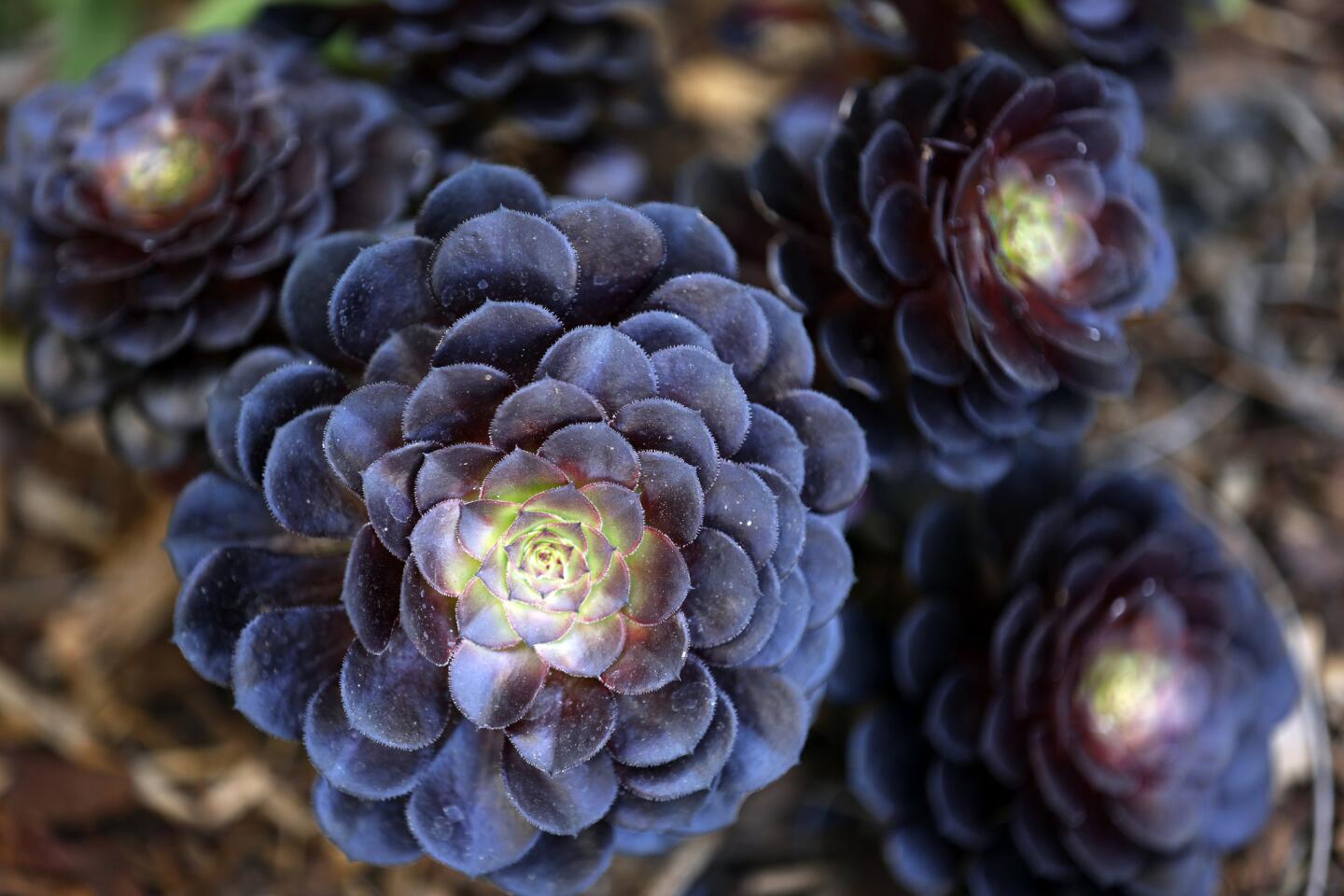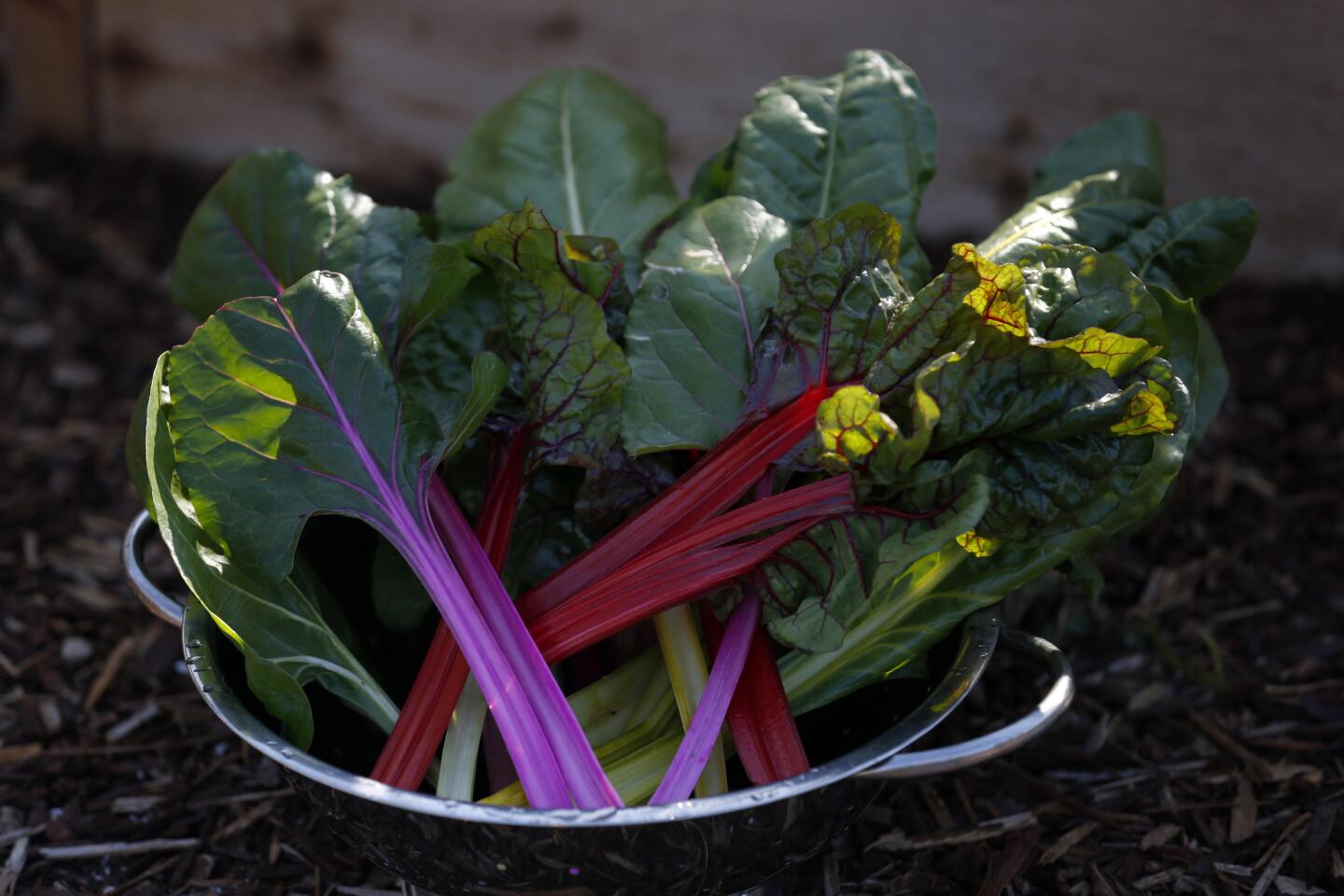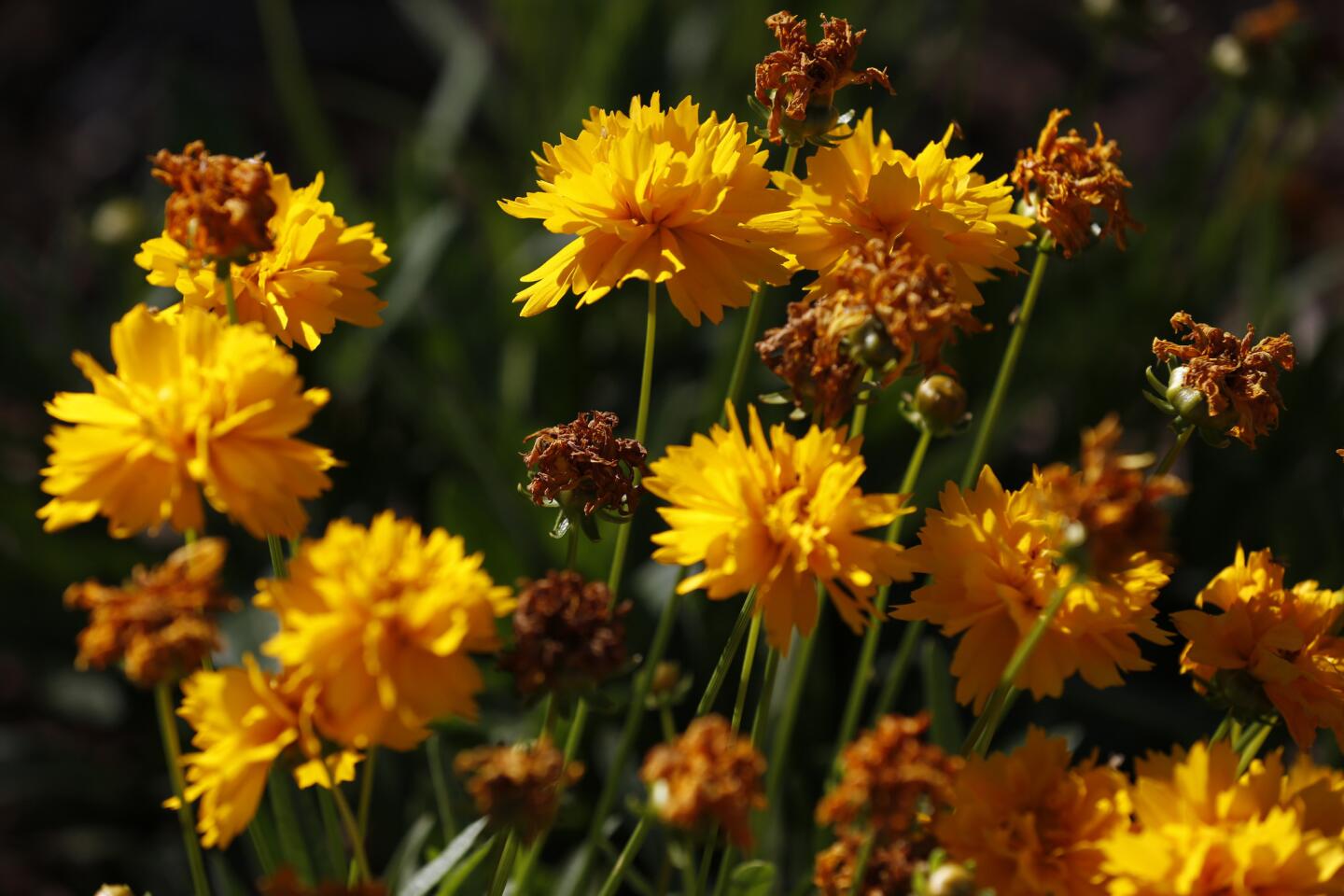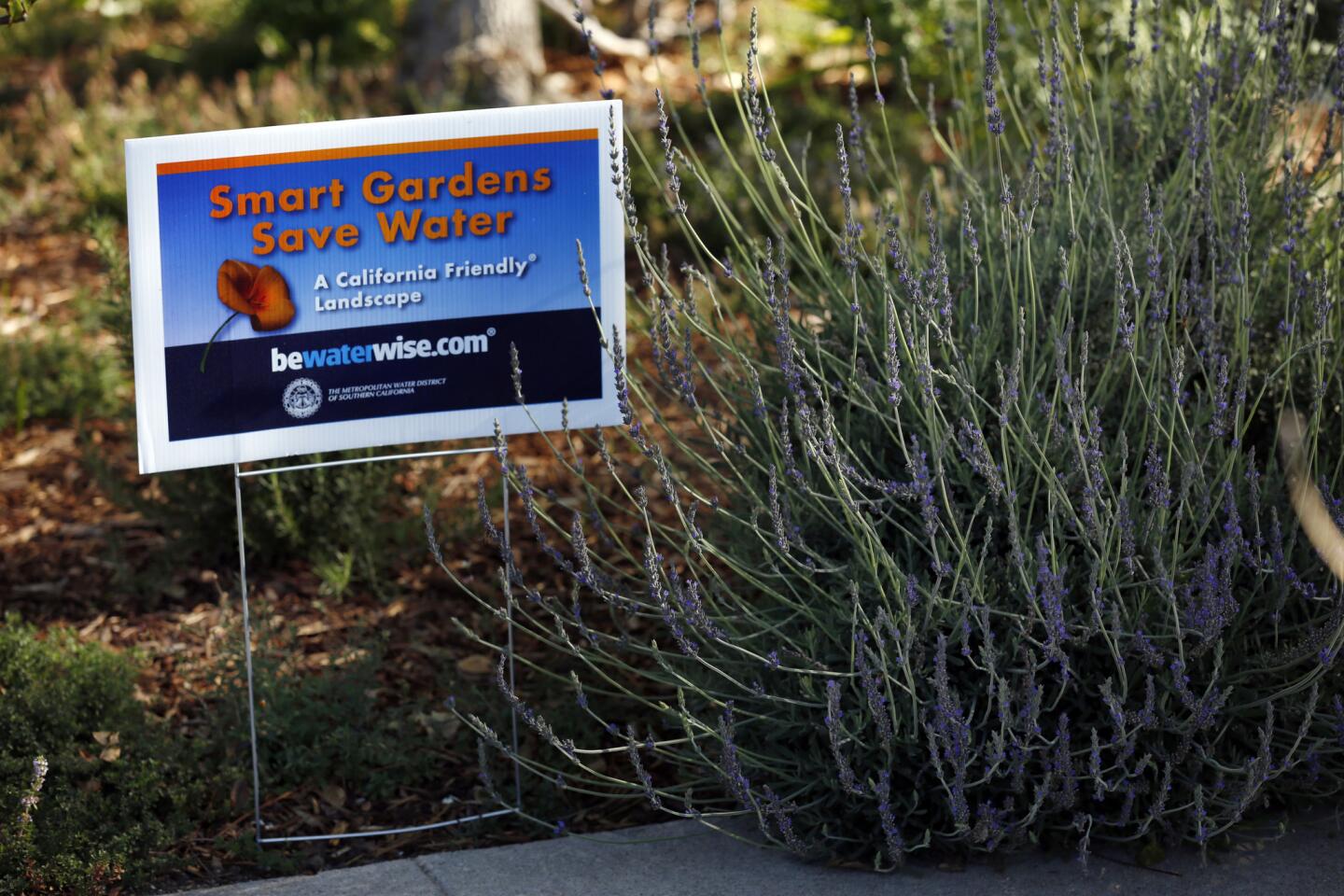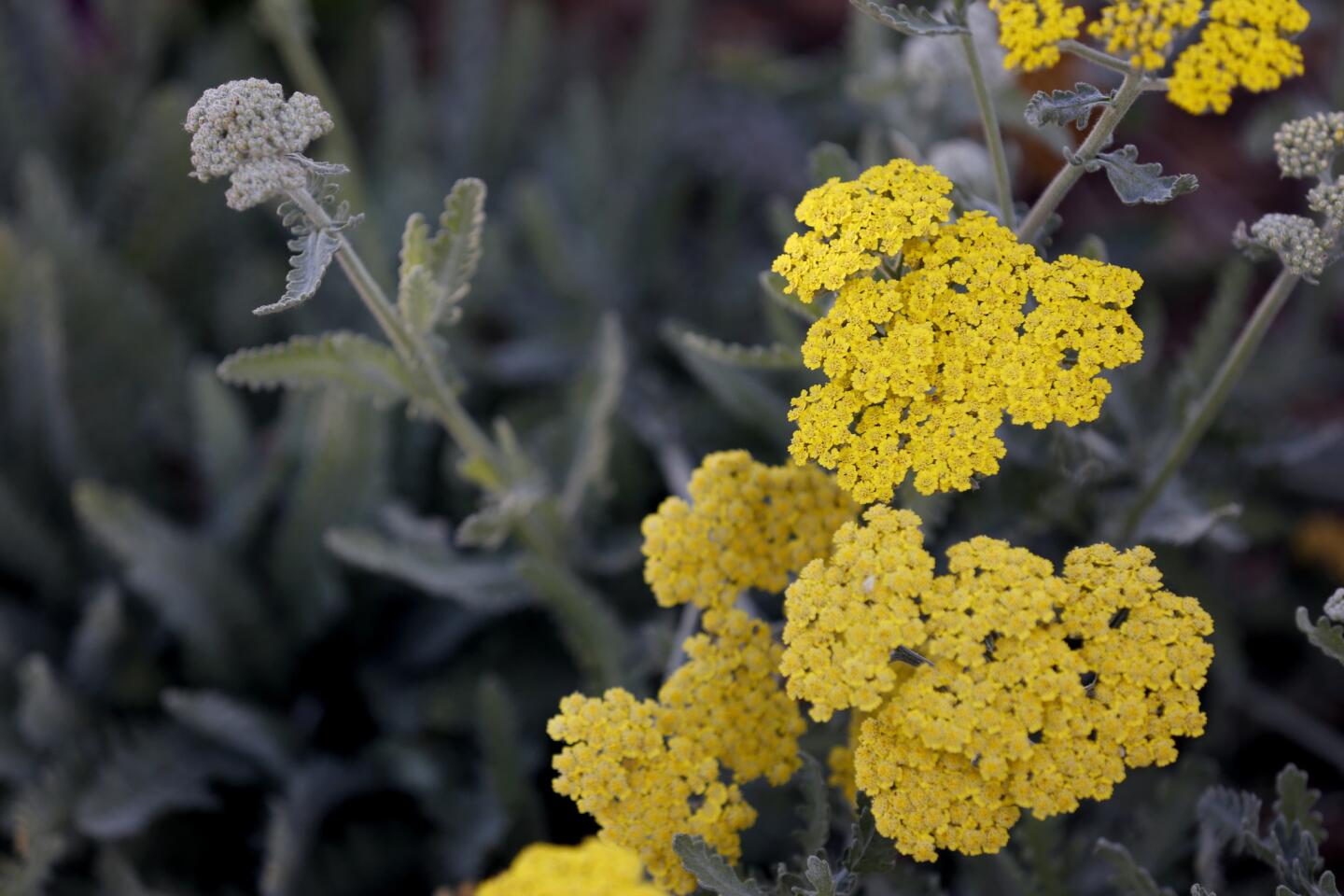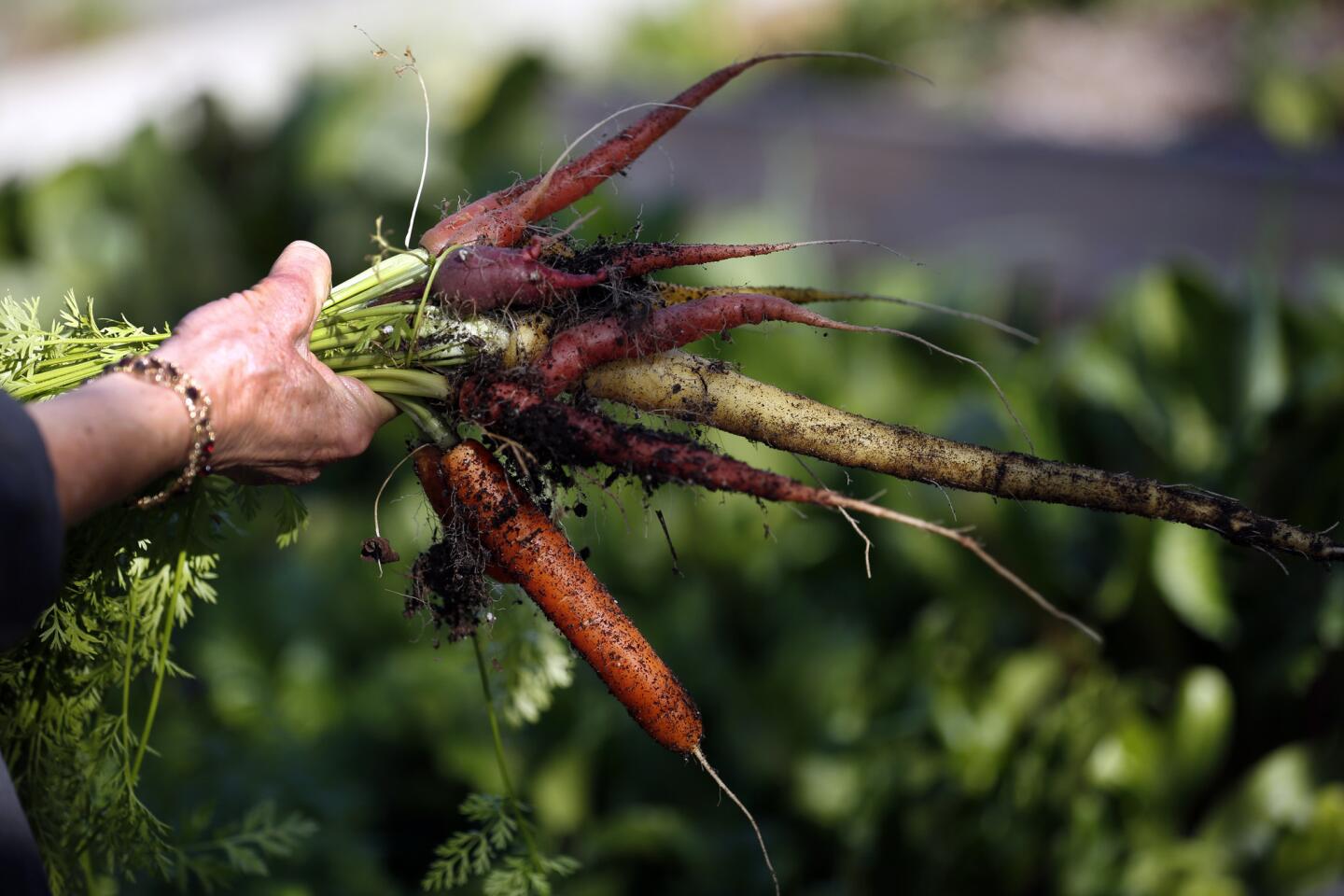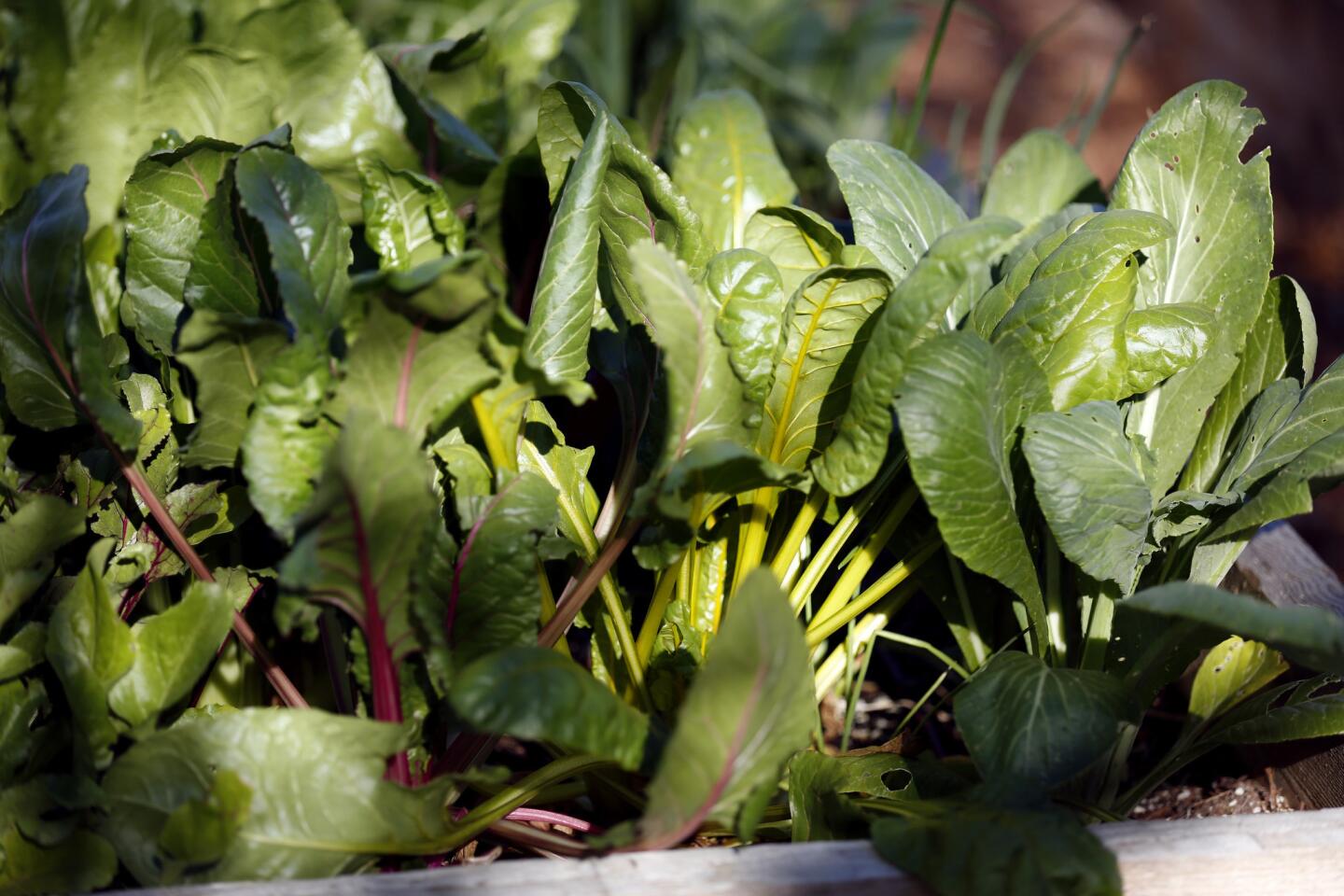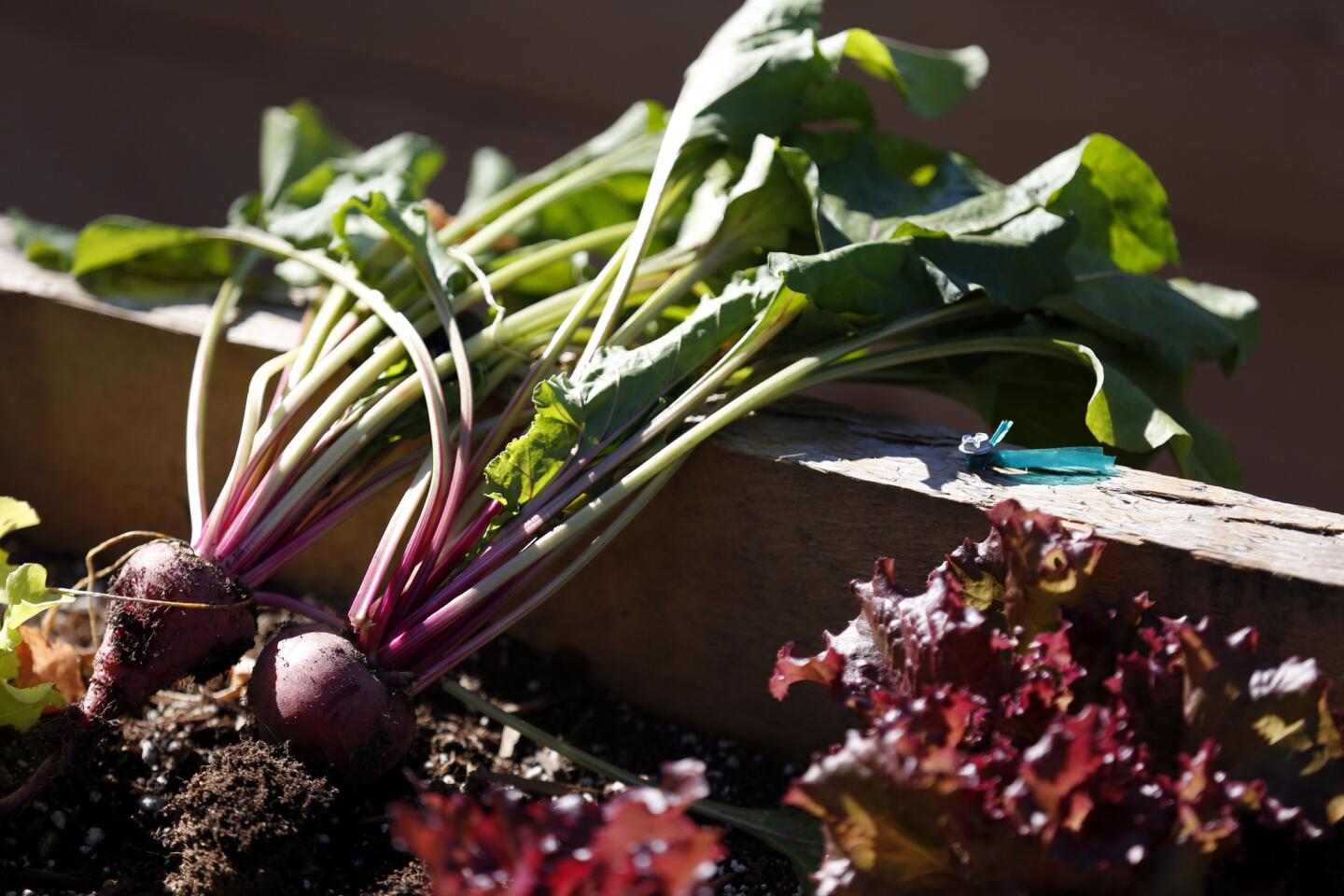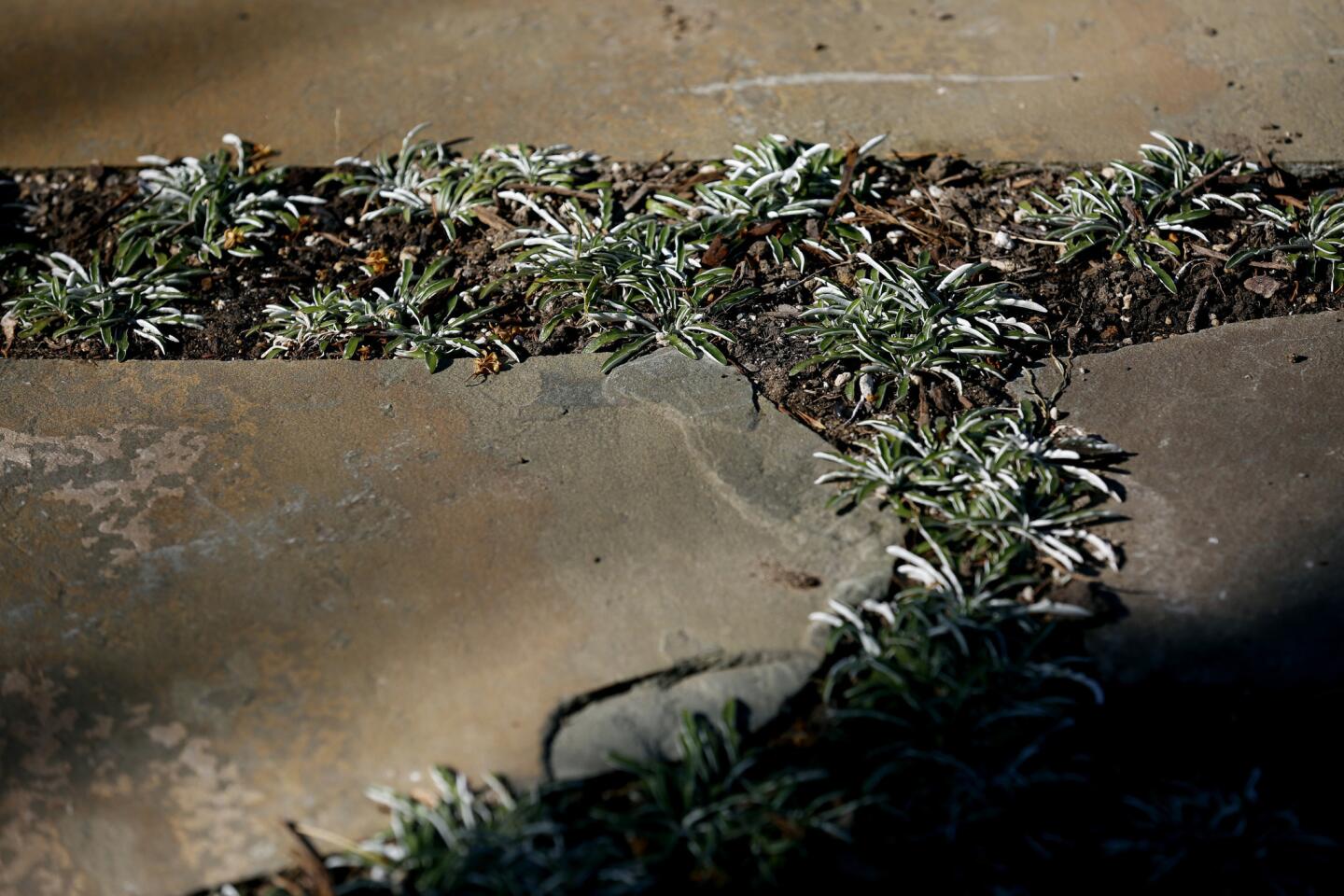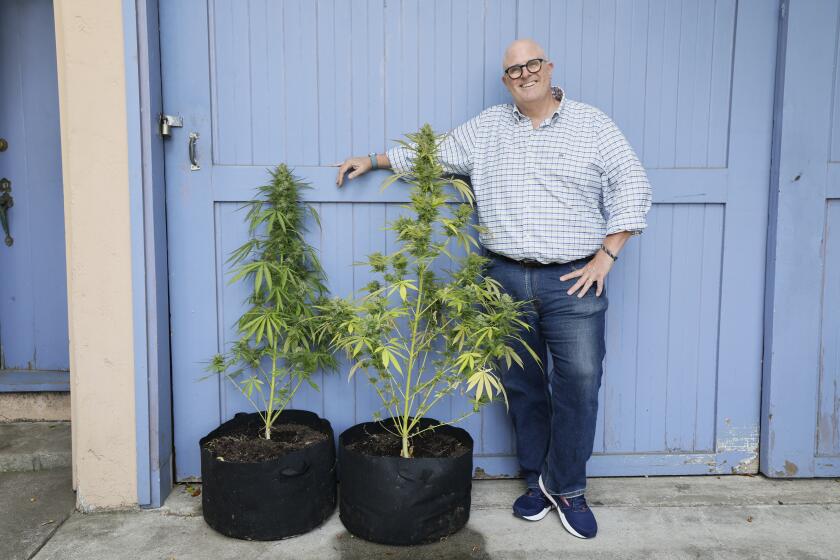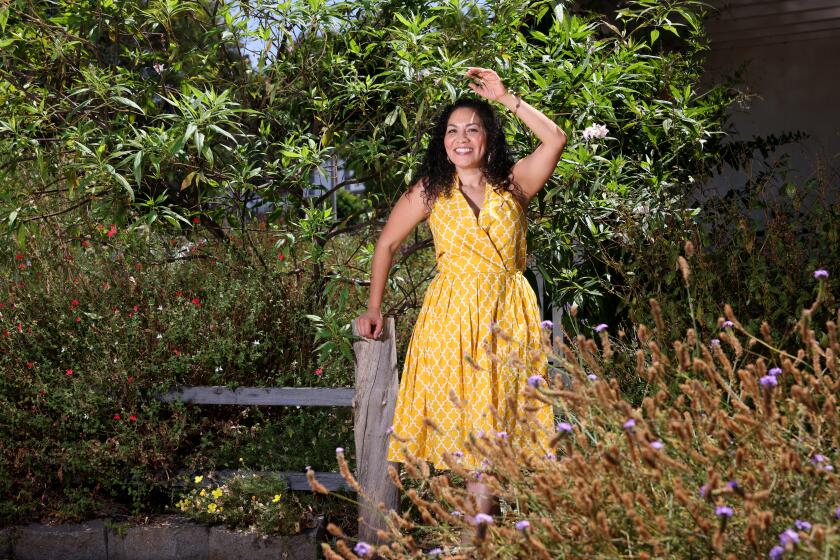Will L.A. become the land of front-yard veggie gardens? This couple is leading the way
For Jeffrey and Linda Glaser, getting rid of their Beverlywood front lawn was a no-brainer.
“When our daughter was little, we used our frontyard, but not anymore,” said Jeffrey Glaser, an executive at 20th Century Fox Television. “We’re in a drought. You don’t have to be a scientist to figure this out.”
The couple worked with gardening consultant Christy Wilhelmi, whom they met at last year’s Mar Vista Green Garden Showcase tour, to tear out the 3,000-square-foot lawn in October and replace it with drought-tolerant plants, water-conserving California natives and edibles.
They also added a bioswale to collect water from one of four new rain barrels, which they said fill easily without consistent rainfall. Their efforts earned them a turf removal rebate from the Los Angeles Department of Water and Power, which at the time was $2 a square foot.
The new landscape on the dramatic corner lot features raised vegetable beds conveniently located a short walk from the front door, framed by low-water rockroses and paths that allow easy access for harvesting food. Accented by a miniature, house-shaped book-lending library, the 3,000-square-foot garden stands out amid streets that are lined with neatly manicured lawns.
What the Glasers didn’t expect was the overwhelmingly positive response they have received from neighbors, many of whom they didn’t know before they planted the conversation-starting garden.
“People always stop and comment on how pretty it looks,” Linda Glaser said. “It’s hard not to come out and talk to people. People knock on our door and ask us for carrots.”
The comments are understandable. The colorful garden has the romantic feeling of an English garden, with its purple Mexican daisies and sea lavender, orange lantana, yellow yarrow and coreopsis and pink rockroses. The couple kept several mature trees, including a pecan from which their daughter’s swing still hangs for neighborhood kids to use. They paved the area underneath the pecan with permeable decomposed gravel.
Rosemary and lavender add a sweet aroma. Bees are drawn to the lilac verbena, while Cleveland sage, penstemon and agapanthus attract butterflies and birds. In a hopeful move, Wilhelmi planted four native milkweed plants to create a haven for monarch butterflies and a food source for their caterpillar stage.
“There is so much life in this garden,” Wilhelmi said as she inspected the milkweed. “At one point we counted 30 caterpillars.”
Two large raised vegetable beds, which the Glasers hand water, are bursting with beets, lettuces, garlic, Swiss chard, carrots and tomatoes. In the side yard, Wilhelmi created a small fruit orchard stocked with oranges, lemons and limes, and blueberries grow in a barrel. “I have not purchased lettuce since October,” Linda said.
Because it is a new garden, the Glasers currently water three times a week for 10 minutes each time with a drip irrigation system. Once the plants are firmly established, Wilhelmi predicts they will need to water only once a week.
We all know that low-water gardens are an environmentally sound choice for California given current drought conditions. But can a garden move beyond merely saving water and into community building?
The Glasers clearly think so. “Perhaps people will get used to this look,” Jeffrey Glaser said. “And over time they will come to think of lawns as ridiculous. There’s just no reason to have a lawn anymore.”
Christy Wilhelmi will be available to answer questions about organic vegetable gardening and composting during the Mar Vista Green Garden Showcase, which is 10 a.m. to 4 p.m. April 25; marvistagreengardenshowcase.blogspot.com.
Twitter: lisaboone19
MORE:
A modern, beautiful interior in Silver Lake that goes great with kids
How to landscape with pavers that are low on water, high on appeal
Inspiration -- and tips -- for drought gardening
